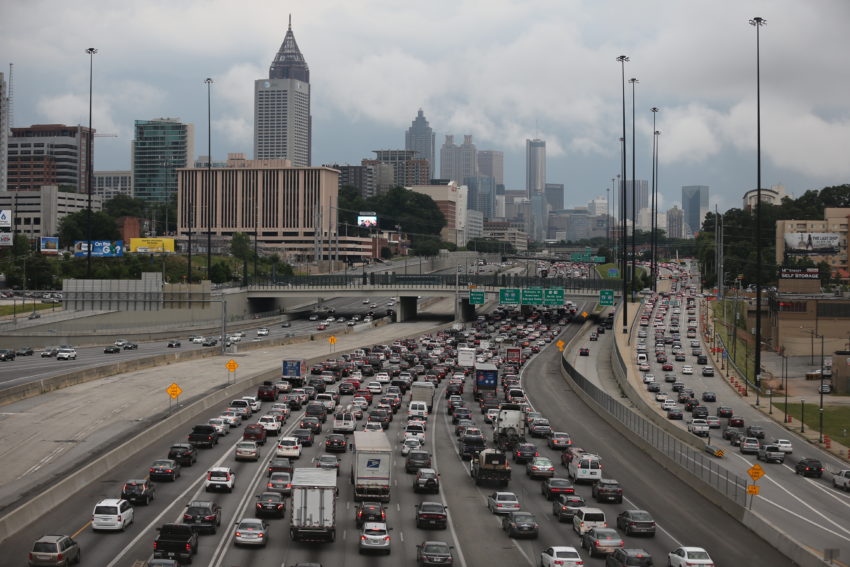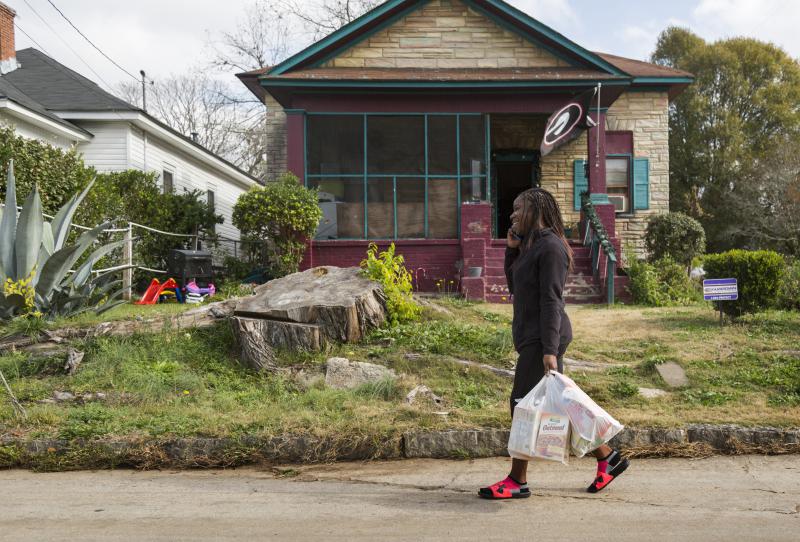
Share On Social!
Latinos say they face bigger transportation struggles and public health issues than non-Latinos in Atlanta, and they’re willing to pay higher taxes to improve public transportation, according to a new survey.
The Atlanta Regional Commission’s annual survey ask Atlanta residents their views on transportation, education, health, and more.
Overall, residents tabbed transportation as their top concern for the fourth straight year.
Transportation is a big deal because it affects day-to-day life. It also affects mental and physical health, professional success, and climate change. Yet, transportation looks very different across the country.
Cities with poor transportation options are often burdened by health disparities, economic segregation, and poor air quality. For example, many Latino neighborhoods lack streets that are safe for walking and biking, and they suffer higher rates of obesity and diabetes, according to a Salud America! research review.
In Atlanta, Latinos definitely struggled with transportation issues.
Top Concerns in Atlanta

When asked if the collapse of interstate 85 bridge on March 30, 2017 changed the why they got around, nearly two in five (38.0%) Latinos said it changed their travel or work schedule, compared to less than two in 10 non-Latinos (18.9%), according to the Atlanta Regional Commission survey.
Less than half of Latino respondents (46.5%) said it did not change the way they got around, compared to 70.1% of non-Latinos.
Over half of survey respondents (50.9%) said they are willing to pay higher taxes to expand public transit. More millennials,18-34 year-olds, (59.9%) and even more Latinos (63.9%) said they are willing to pay higher taxes to expand public transit.
It’s important to remember that transportation issues are about more than just roads and transit. Transportation issues are also a land use issues, yet many survey respondents may not understand this connection.
City leaders should prioritize the needs and concerns of both growing millenial and Latino groups and consider investment in safe transportation options as a population-wide intervention with social, economic, and health benefits.
Need for Population-wide Intervention
Where you live is a better predictor of your health than your genetics, because where you live determines you access to quality education, employment opportunities, healthy food, health care, and other important destinations.
If you live in Atlanta, you will face more health disparities and die earlier if you are a minority. African Americans, for example, face double the mortality rate from diabetes than whites in Atlanta.
Health is also a bigger concern for Latinos in Atlanta.
More Latino residents (12.7%) said public health is the biggest problem facing residents of Metro Atlanta than non-Latino residents (4.6%), according to the Atlanta Regional Commission survey.
Population-wide interventions to prevent diabetes will have a far greater impact on the health of Atlanta’s residents than treatment for individuals with diabetes.
Take it from global leader in diabetes and chronic disease public health, Professor K.M. Venkat Narayan at the Hubert Department of Global Health at the Rollins School of Public Health at Emory University in Atlanta.

Source: GRANT BLANKENSHIP / GPB
“We have gotten very good at caring for and controlling diabetes, but we are lagging in prevention,” Narayan said, according to one source. “The science is there. We know exercise, a healthy diet, and weight loss are extremely effective in preventing diabetes in people at high risk, but we haven’t been able to figure out how to translate and scale up the implementation of that knowledge into population-wide interventions that work. We also need to find ways to improve outcomes for disenfranchised populations.”
Improving geographic mobility is a population-wide intervention that can bridge physical activity and a healthy diet.
But not in the traditional sense of roads and highways. The key to the healthiest cities in the world is options for people to walk, bike, and use public transit.
Providing safe, reliable transportation options for people to walk, bike or take public transit can help address chronic diseases like diabetes. Additionally, improving transportation options has numerous far-reaching social and economic benefits which extend to the entire community.
Does your city survey it’s residents on top concerns?
Get local data on your community’s top health issues with our Salud America! Salud Report Card!
By The Numbers
142
Percent
Expected rise in Latino cancer cases in coming years



